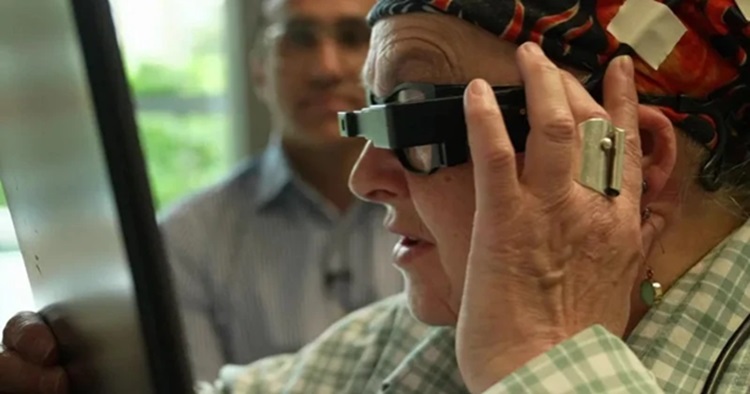Revolutionary eye implant helps blind patients regain ability to read


A groundbreaking eye implant has enabled a group of blind patients to read again, offering new hope for people living with severe vision loss.
Surgeons at Moorfields Eye Hospital in London successfully implanted the tiny device in five patients as part of an international clinical trial. The results, described as “astounding,” were published in the New England Journal of Medicine.
Among the patients is 70-year-old Sheila Irvine, who is registered blind. “It’s out of this world,” she told the BBC after regaining her ability to read and complete crosswords. “It’s beautiful, wonderful. It gives me such pleasure.”
The innovation could transform treatment for those suffering from an advanced form of dry age-related macular degeneration (AMD) known as geographic atrophy (GA), which affects over 250,000 people in the UK and about five million worldwide. The disease causes cells in a small area of the retina to deteriorate, blurring central vision and erasing fine detail.
The new procedure involves inserting a two-millimetre-square photovoltaic microchip—about the thickness of a human hair—beneath the retina. Patients wear special glasses equipped with a video camera that transmits infrared images to the implant. These are processed and relayed via the optic nerve to the brain, restoring partial vision.
Mahi Muqit, consultant ophthalmic surgeon at Moorfields, who led the UK arm of the trial, called it “pioneering and life-changing technology.”
“This is the first implant shown to give patients meaningful vision they can use in daily life, such as reading and writing,” he said. “It’s a major advance.”
Of the 32 participants who received the Prima implant, developed by California-based Pixium Vision, 27 regained the ability to read using their central vision. On average, their vision improved by about 25 letters—or five lines—on a standard eye chart within a year.
For Sheila, the results have been even more dramatic. Once completely unable to read, she can now enjoy books, crosswords, and Sudoku. “Not in a million years did I think I’d read again,” she said. “It’s amazing. I am one happy bunny.”
Sheila, who lost her central vision more than 30 years ago, now uses the device mainly at home. “I rush my chores so I can sit down and put on my special glasses,” she said, adding that she avoids using it outdoors to prevent over-reliance.
While the Prima implant is still in clinical trials and not yet commercially available, Muqit hopes it could reach some NHS patients “within a few years.”
Dr Peter Bloomfield, research director at the Macular Society, hailed the findings as “fantastic news.”
“Artificial vision may bring real hope to many who currently have no treatment options,” he said. “We’re watching closely to see if this technology will be approved and made available through the NHS.”
Experts note, however, that the implant may not benefit patients whose optic nerves are damaged and unable to transmit signals to the brain.
Source: Agency
